'The Best Way to Buy Books'
 "I do not believe there is a wrong way to buy books. I think that the BEST way to buy books is from a local indie bookshop, if you have one."
"I do not believe there is a wrong way to buy books. I think that the BEST way to buy books is from a local indie bookshop, if you have one."
 "I do not believe there is a wrong way to buy books. I think that the BEST way to buy books is from a local indie bookshop, if you have one."
"I do not believe there is a wrong way to buy books. I think that the BEST way to buy books is from a local indie bookshop, if you have one."
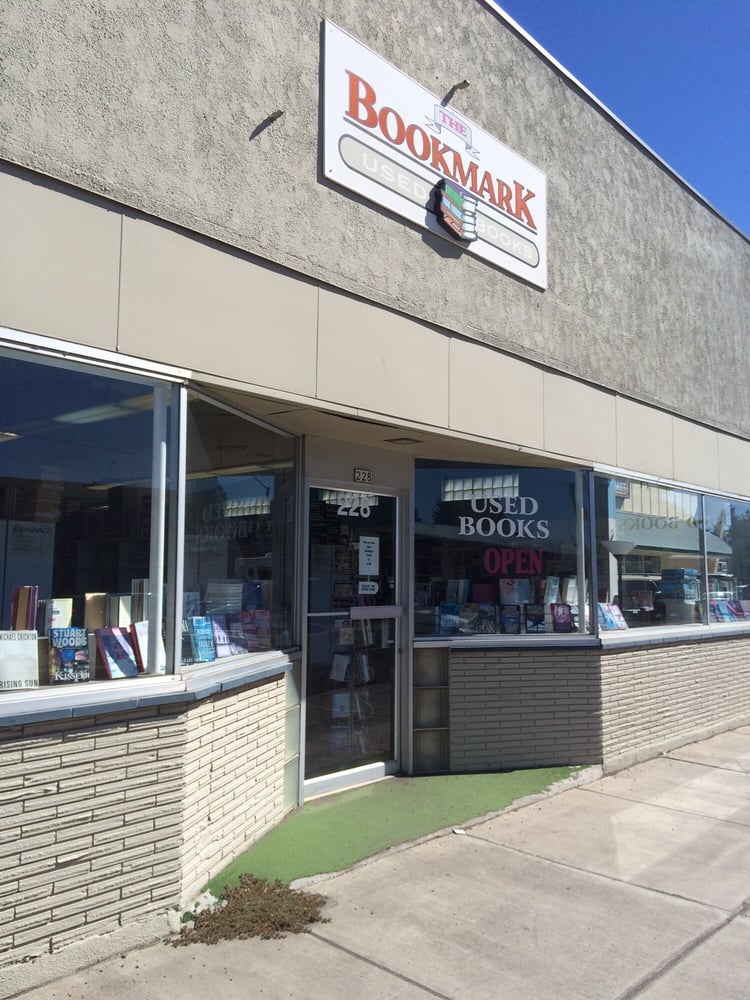 Josh and Heidi Spencer, co-owners of the Last Bookstore in downtown Los Angeles, Calif., have purchased the Bookmark used bookshop in Bend, Ore., and "plan to overhaul its inventory to include new books and used DVDs," the Bulletin reported. The Spencers, who are Bend residents, completed the acquisition last week from Linda McGeary, who founded the bookstore 15 years ago and is planning to retire. The Bookmark has 2,746 square feet of space and about 100,000 books.
Josh and Heidi Spencer, co-owners of the Last Bookstore in downtown Los Angeles, Calif., have purchased the Bookmark used bookshop in Bend, Ore., and "plan to overhaul its inventory to include new books and used DVDs," the Bulletin reported. The Spencers, who are Bend residents, completed the acquisition last week from Linda McGeary, who founded the bookstore 15 years ago and is planning to retire. The Bookmark has 2,746 square feet of space and about 100,000 books.
"We just saw an opportunity," said Josh Spencer, adding that the pair plan to change the name of the business to Big Story, spruce up the building and update the inventory.
The new owners "will operate the Bend bookstore along with an employee," the Bulletin noted, adding that Josh Spencer "manages the Last Bookstore remotely most of the time but spends one week a month in L.A."
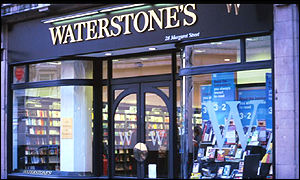 Waterstones, the bookselling chain with 275 stores in the U.K., Ireland and continental Europe, appears to have turned a corner: the company made its first profit in five years and plans to open stores "in the double digits," managing director James Daunt told the Bookseller.
Waterstones, the bookselling chain with 275 stores in the U.K., Ireland and continental Europe, appears to have turned a corner: the company made its first profit in five years and plans to open stores "in the double digits," managing director James Daunt told the Bookseller.
In the year ended April 30, 2016, sales rose 4%, to £409.1 million (about $510.9 million), and Waterstones had a pre-tax profit of £9.9 million ($12.4 million) compared to a pre-tax loss of £4.5 million ($5.6 million) a year earlier.
Daunt attributed the profit in part to "better standards of bookselling" as well as a slowdown in the growth of e-book sales and an investment of £9 million ($11.2 million) during the year that made its stores "better, different, nicer." He also emphasized the importance of Waterstones booksellers and of handselling, and pointed out that booksellers' enthusiasm made the chain's 2016 Book of the Year, The Essex Serpent by Sarah Perry, which "would otherwise have achieved modest sales," become "a bestseller in the most competitive month of December. That is all about the service from bookselling. It is not about posters on the underground, but individual recommendations."
As for competition, Daunt said, "Amazon is our only real competitor. WH Smith does its own thing, independent bookshops do their own thing, just as we do our own thing. I think our business is less bestseller-led, unless we create one. It is more driven by a deep range of solid, decent books." Non-book products account for 12% of sales and likely will grow to 15% in the next three years.
Waterstones' next three-year plan is to "grow top line sales and generate more profit," Daunt said, adding that he wants to invest more in staff training and pay. "Certainly we need to give booksellers a pay rise," he said. "It is a virtuous circle, if you invest in staff, they want to stay with the company and worker harder, then the company does better. So we certainly want to be investing in them more going forward."
Since 2011, Waterstones has closed some unprofitable stores and plans to open more stores partly to "make up for the fact that the outlets it has closed have tended to be larger than the ones it has opened," the Bookseller wrote.
"We are scurrying around, looking for the right opportunities, but the property market remains quite tight" in the U.K., Daunt said. "We will be looking predominantly on the high street [downtowns], although we have done quite well in shopping centres recently."
 Dan Marshal, co-owner of Mischief Toy Store in St. Paul, Minn., recalled during a panel discussion on the New Localism that when he and his wife opened their first business together, a baby and toddler natural toy store, their big competitive concerns were stores like Barnes & Noble, Borders and Wal-Mart. "I look at it now and I'm like, hey, those people pay property taxes," said Marshal. "Compared to Amazon, they're like best friends."
Dan Marshal, co-owner of Mischief Toy Store in St. Paul, Minn., recalled during a panel discussion on the New Localism that when he and his wife opened their first business together, a baby and toddler natural toy store, their big competitive concerns were stores like Barnes & Noble, Borders and Wal-Mart. "I look at it now and I'm like, hey, those people pay property taxes," said Marshal. "Compared to Amazon, they're like best friends."
Marshal, who is active in the Twin Cities MetroIBA, said that when trying to educate people about the new localism, it's necessary to convey the idea that "Amazon and almost exclusively Amazon is the enemy to main street America." He expressed frustration with both the huge taxpayer subsidies Amazon often gets for opening distribution centers as well as the shortsighted, uncritical way the media and most politicians think about Amazon, calling Amazon's staffing and hiring policies at those distribution centers "straight out of a 1900 steel mill playbook."
He encouraged booksellers to get together with other local business owners and go to their state legislatures, even though it could sometimes feel like herding cats. He also warned against trying to lecture to customers: "You can't ever confront your customer about their buying habits." When interacting with customers, business owners should "set an example, create a community, give people a reason to come to your store."
During the same panel, Richard Howorth, co-owner of Square Books in Oxford, Miss., and Oxford's mayor for eight years, recalled that during his time in city hall he saw "real people" very few times. "Pretty sure all we ever saw were engineers, architects and lawyers," Howorth said, so that when "real people" did come to city hall, "it was really effective."
---
During a panel discussion on how booksellers can make the most out of literary awards, National Book Foundation executive director Lisa Lucas gave a short history of the National Book Award, including the "oopsie moment" in the 1970s during which the award became the American Book Awards and grew to include more than 20 categories. The expansion was so large, Lucas said, that the awards "sort of lost all of [their] meaning." As interest dwindled, the National Book Foundation was created to preserve the award and its tradition. The name was changed back to the original, and the awards were cut back to just two categories: fiction and nonfiction, with poetry and young people's literature eventually being added.
Later in the same discussion, Lucas talked of creating some sort of National Book Club, where every quarter people would read a past winner of the award. She also noted that there used to be a Gold Medal tour that took winners around the country, and that she was "very interested" in figuring out how to support something like that.
---
At the start of a roundtable discussion for sharing ideas among stores with less than 1,000 square feet of space, moderator Daiva Chesonis, co-owner of Between the Covers Bookstore in Telluride, Colo., asked the approximately 25-30 booksellers present about the square footage of their stores. The total was 20,766 square feet, which Chesonis observed toward the end of the discussion was about one-third the square footage of Powell's City of Books in Portland, Ore.; one-sixth of an average Target; and one-ninth of the average SuperTarget. Chesonis also recalled measuring the books on the shelves in her store to find out how many miles of books Between the Covers had in stock, in the vein of Strand Book Store in New York City and its 18 miles of books. Chesonis reported that her store stocked close to a furlong--about an eighth of a mile--of books, and she recommended that the other booksellers in attendance do the same.
"Have fun with it," said Chesonis. When it comes to being a small store, "let your customers know your pride in it." --Alex Mutter
Effective today, Fordham University Press is moving from the university's Rose Hill campus in the Bronx, N.Y., to its Lincoln Center Campus in Manhattan, where the Fordham College of Lincoln Center, Fordham University's School of Law and Gabelli School of Business are located. The press's new address is: Joseph A. Martino Hall, 45 Columbus Ave., New York, N.Y. 10023.
The press said that "the move stems from a desire to remain competitive and accessible in a perpetually evolving publishing landscape. Manhattan is the hub of publishing and attracts both authors and publishing professionals from all over the world. The new location will raise the profile of FUP and is ideally located for press-sponsored events such as author panels, book launches, and signings."
Director Fredric Nachbaur commented: "I'm excited about Fordham University Press moving to Manhattan not only to be better integrated with other key stakeholders on the Lincoln Center campus, but also to be an active participant in the publishing community. In addition, Empire State Editions has developed into a major regional imprint for FUP, so the Manhattan location will allow us to better engage with authors, agents, and our community of readers and booksellers. I look forward to this change and continuing to raise the profile of FUP and collaborating with the university and neighboring institutions on innovative partnerships."
In other news, effective July 1, Ingram Publisher Services will become Fordham University Press's primary distribution partner.
Bharati Mukherjee, "an Indian-born American writer who explored the internal culture clashes of her immigrant characters," died January 28, the New York Times reported. She was 76. Her collection The Middleman and Other Stories (1988) won the National Book Critics Circle Award for fiction. "The title character and narrator of Jasmine (1989), a novel that quickly won a place on high school and college reading lists, is a poor Punjabi who makes her way to Florida and undergoes a series of transformations," the Times noted. Mukherjee's other books include The Holder of the World, Tiger's Daughter, Desirable Daughters, Wife, The Tree Bride and Miss New India.
"The narrative of immigration is the epic narrative of this millennium," she wrote in an autobiographical statement for the reference work Contemporary Authors in 2005. She also observed: "From those years I evolved a credo: Make the familiar exotic (Americans won't recognize their country when I get finished with it) and make the exotic--the India of elephants and arranged marriages--familiar."
In a 1993 Boston Globe interview, Mukherjee said, "While I have changed in my 30 years in this country, it has also had to change because of the hundreds of thousands of people like me, forcing the culture, moment by moment, into something new. I am looking for that new, constantly evolving thing."
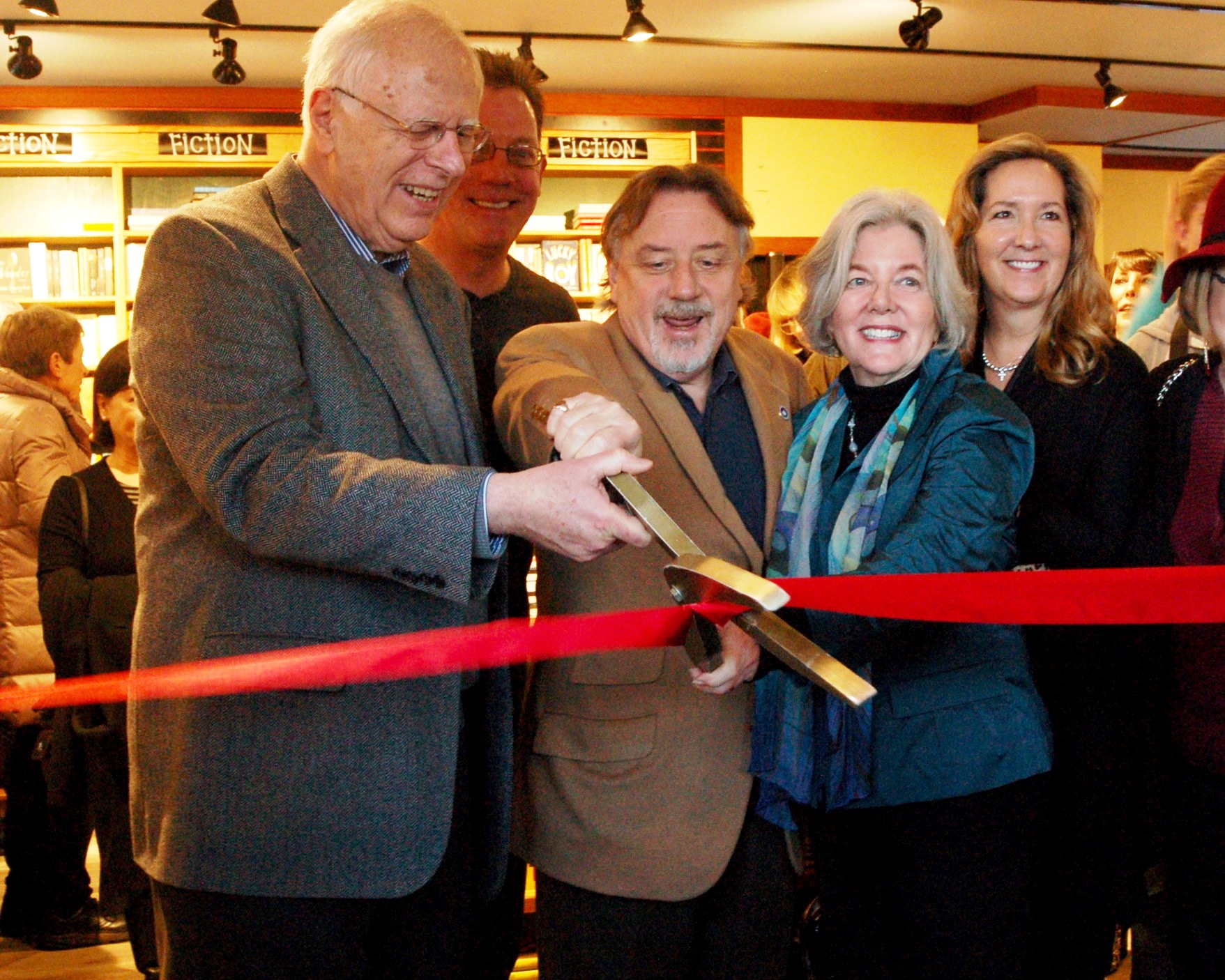 Sausalito, Calif., Mayor Ray Withy, flanked by store owners Bill Petrocelli and Elaine Petrocelli, cut the ribbon on the newest Book Passage during a grand opening party on Saturday. It's Book Passage's third store and is located a block north of the terminal for the ferry to San Francisco. (Steps from the end of the ferry ride is another Book Passage.)
Sausalito, Calif., Mayor Ray Withy, flanked by store owners Bill Petrocelli and Elaine Petrocelli, cut the ribbon on the newest Book Passage during a grand opening party on Saturday. It's Book Passage's third store and is located a block north of the terminal for the ferry to San Francisco. (Steps from the end of the ferry ride is another Book Passage.)
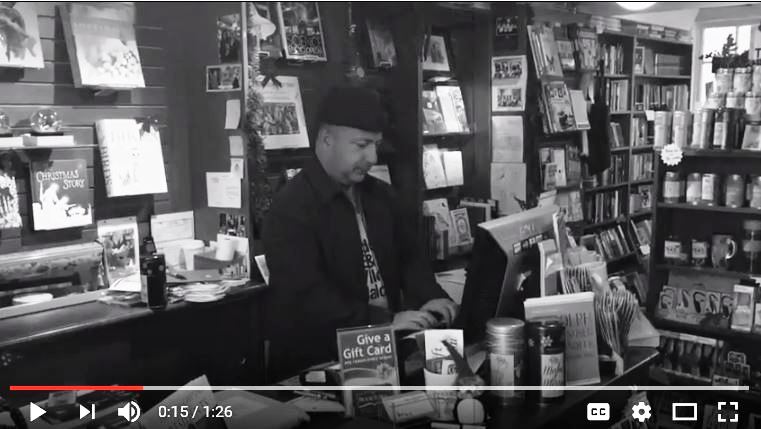
Catherine Onder has joined Houghton Mifflin Harcourt as senior v-p and publisher of HMH Books for Young Readers. She was most recently editorial director of Bloomsbury Children's Books and earlier worked at HarperCollins and Disney-Hyperion.
Ellen Archer, president of HMH Trade Publishing, praised Onder's "wealth of experience and a tremendous track record in middle reader and young adult publishing."
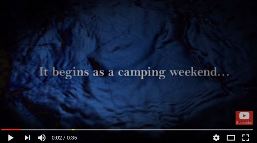
Today:
Fresh Air: Brian Alexander, author of Glass House: The 1% Economy and the Shattering of the All-American Town (St. Martin's Press, $26.99, 9781250085801).
NBC's Harry: Keke Palmer, author of I Don't Belong to You: Quiet the Noise and Find Your Voice (North Star Way, $24.99, 9781501145391).
Watch What Happens Live: Marissa Hermer, author of An American Girl in London: 120 Nourishing Recipes for Your Family from a Californian Expat (Rodale, $27.50, 9781623368159).
Tomorrow:
Today: John Tarnoff, author of Boomer Reinvention: How to Create Your Dream Career Over 50 (Reinvention Press, $14.95, 9780997953909).
Fox News's Tucker Carlson Tonight: Hugh Hewitt, author of The Fourth Way: The Conservative Playbook for a Lasting GOP Majority (Simon & Schuster, $24.99, 9781501172441).
Late Night with Seth Meyers: Anderson Cooper, co-author of The Rainbow Comes and Goes: A Mother and Son on Life, Love, and Loss (Harper Paperbacks, $15.99, 9780062454959).
British actress Kristin Scott Thomas (The English Patient, I've Loved You So Long) "is making her directorial debut with romantic drama The Sea Change, based on Elizabeth Jane Howard's novel of the same name," Deadline reported. Scott Thomas will star in the film as Lillian, and Mark Strong is in talks to play her husband, Emmanuel. Adapted by Rebecca Lenkiewicz (Ida, Disobedience), the project will be produced by Barnaby Thompson (Easy Virtue, St. Trinian's) for Fragile Films.
"Sidney Pollack told me that actors are naturally good filmmakers and I want to make a film to continue my trajectory as a story teller," said Scott Thomas. "The Sea Change asks a question I have been trying to answer in many of my performances--what are the reasons for the thrills and difficulties of love? I want to make a film that has depth, humor and beauty."
Finalists have been named for the 2017 Oregon Book Awards and can be seen here. Winners will be announced on April 24 at the Oregon Book Awards Ceremony at the Gerding Theater at the Armory in Portland.
Madame President: The Extraordinary Journey of Ellen Johnson Sirleaf by Helene Cooper (Simon & Schuster, $27 hardcover, 336p., 9781451697353, March 7, 2017)
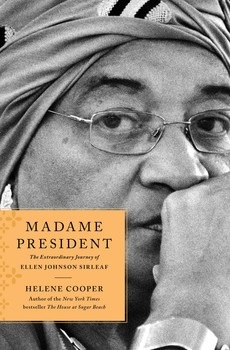 Helene Cooper (The House at Sugar Beach) is a Liberian-born Pulitzer Prize-winning journalist who has worked for the White House, the Wall Street Journal and the New York Times. Her second book, Madame President, is a sympathetic biography of Liberia's extraordinary and controversial president, Ellen Johnson Sirleaf.
Helene Cooper (The House at Sugar Beach) is a Liberian-born Pulitzer Prize-winning journalist who has worked for the White House, the Wall Street Journal and the New York Times. Her second book, Madame President, is a sympathetic biography of Liberia's extraordinary and controversial president, Ellen Johnson Sirleaf.
One of Sirleaf's grandfathers was a Liberian chief, the other was a German trader. She was raised mostly in Monrovia as a light-skinned member of the Congo elite, but maintained contact with her rural relatives. She married young and had four children by age 22, before going to Wisconsin for a degree in accounting. On her return to Liberia, she became head of the Debt Service Division at the Treasury Department, a huge job for a young woman in Liberia in the 1960s. Cooper offers little insight into Sirleaf's childhood and youth--by page 19 she is already 30 years old, divorced from her abusive husband and on her way.
Her courage was astonishing from the start of her career. She repeatedly spoke out against Liberian political corruption despite being marginalized at work, jailed and sentenced to hard labor, released and imprisoned again, gradually becoming a domestic and international political hero. "The stage was now set for the revolution that would overturn gender politics in West Africa." But Sirleaf was also an early supporter of the war criminal Charles Taylor, who led the country into a horrifically brutal conflict while Sirleaf lived and worked safely in the U.S. She finally realized her mistake and ran against him for president in 1997. She lost, but ran again in 2005, with a spectacularly successful grassroots campaign that increased the voter registration of Liberian women from 15% to 51%. Sirleaf then had to confront the chaos of her decimated, traumatized and deeply violent country, its $4.7 billion debt and the outbreak of Ebola. Despite corruption and resistance, she made great inroads in women's rights, anti-corruption measures, education, infrastructure and health. And she won the 2011 Nobel Peace Prize four days before she went up for re-election.
Cooper frankly describes Sirleaf's support for Taylor, her nepotism and other failings as president, while sympathetically laying out what she considers to be Sirleaf's extenuating circumstances. She regards Sirleaf as a flawed but still heroic figure, and though her view is persuasive, she also makes it possible for readers to develop their own opinions. Madame President is a valuable addition to the history of an iconic world leader. --Sara Catterall
Shelf Talker: This is a sympathetic biography of Liberia's extraordinary and controversial president by a Liberian-born U.S. journalist.